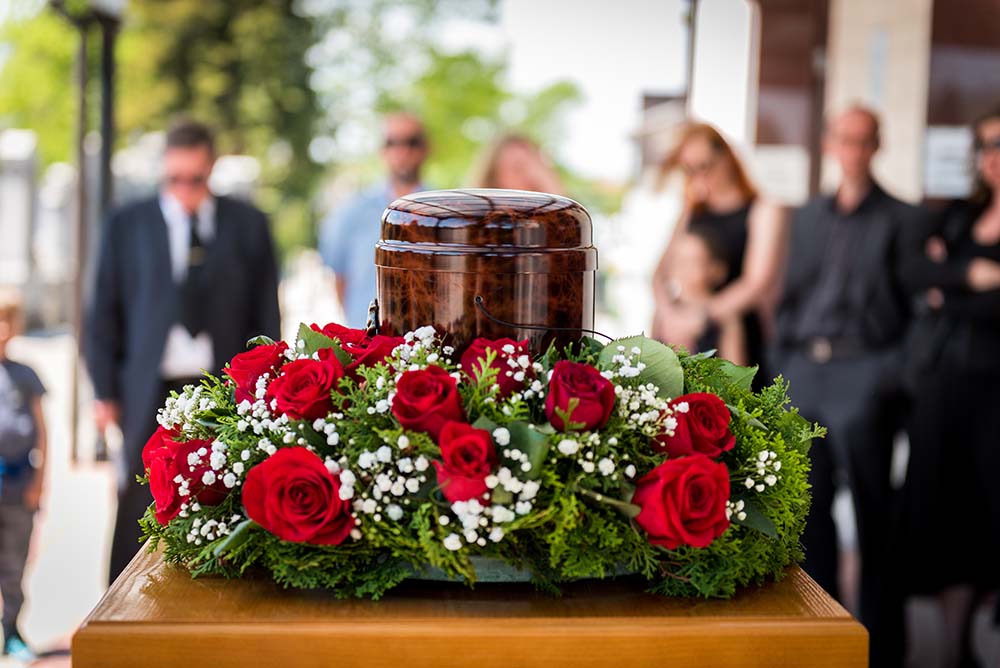When it comes to saying goodbye to a loved one, different cultures have their own unique ways of honouring and remembering the deceased. In this blog post, we will explore the key differences between Asian and Western funeral services. From rituals and traditions to customs and etiquette, understanding these differences can help us gain a deeper appreciation for the diverse ways in which we mourn and pay our respects to those who have passed away.
Understanding Funeral Services in Asian Cultures
Funeral services in Indian cultures, specifically Sikh and Hindu, are steeped in rich traditions and rituals that reflect their beliefs and attitudes towards death. These services are often elaborate and highly ceremonial, designed to honour and remember the departed loved one.
In Sikh funeral services, prayers and hymns from the Guru Granth Sahib, the Sikh holy scripture, are recited. The body is usually cremated, and the ashes are scattered in water. The community comes together to offer support and comfort to the bereaved family, often providing food and other essentials during the mourning period.
Hindu funeral services vary depending on regional customs and beliefs. They may involve prayers, chanting of religious scriptures, and offerings to the deceased. Cremation is the most common practice, with the ashes scattered or immersed in a holy river. Mourning periods can last several days, and close relatives may observe specific rituals.
Understanding the nuances of these funeral services allows us to appreciate the deep cultural and spiritual significance they hold for those involved.
A Closer Look at Western Funeral Traditions and Rituals
Western funeral traditions and rituals vary depending on cultural and religious backgrounds. In Western societies, funerals are often sombre and solemn occasions, with a focus on mourning the loss of a loved one. The funeral service may be held in a church or funeral home, where prayers are said, eulogies are given, and hymns are sung. The body is usually buried in a cemetery, and a tombstone or memorial plaque may be placed to mark the grave.
Some Western funeral customs also involve a wake or visitation, where friends and family gather to pay their respects to the deceased. Flowers, photographs, and other personal items are often displayed during the visitation.
Five key differences between Indian and Western funerals
Indian and Western funerals have distinct differences that reflect the unique cultural and religious beliefs of each society.
Here are five key differences between Indian and Western funerals:
1. Funeral customs: Indian funerals are guided by Hindu customs, which often involve cremation as the preferred method of disposition. The ashes are then scattered in a sacred body of water, such as the Ganges River. In contrast, Western funerals often involve burial, with the deceased being placed in a coffin and buried in the ground.
2. Mourning attire: Indian funerals are marked by wearing white clothing as a symbol of purity and peace. It is considered inappropriate to wear any colour but white at most Hindu funerals. This is quite the opposite of Western funerals, where black is the standard colour of mourning and attendees are usually expected to wear black or other dark, sombre colours. Black symbolises death, mourning and the mystery of the unknown in many Western cultures.
3. Rituals and prayers: Indian funerals include hymns, prayers, and recitations from religious texts, reflecting the influence of Hindu customs. In Western funerals, eulogies are often delivered, allowing loved ones to share memories and stories about the deceased. Prayers and hymns may also be recited, depending on the religious affiliation of the family.
4. After-death Beliefs: Western funerals often involve beliefs about heaven and hell or reincarnation in the case of certain sects. Some Western funerals might even skip religious services altogether in favour of secular celebrations of life. Conversely, most Indian funerals are influenced by Hinduism and believe in the cycle of life, death, and rebirth. Therefore, death is not viewed as an end but as a transition.
5. Mourning period: Indian funerals are often followed by a mourning period that lasts for a specific number of days, depending on the customs and beliefs of the family. During this time, family members may refrain from participating in certain activities and rituals. Western funerals, on the other hand, do not typically have a designated mourning period, although family and friends may continue to grieve in their own ways.
Fundamental Differences Between Indian and Western Funeral Services
Indian and Western funeral services have distinct differences in their customs, rituals, and attitudes towards death. One key difference is the focus on community in Indian funeral services. In Sikh and Hindu cultures, the community plays a significant role in providing support and comfort to the bereaved family. This is seen through the offering of food and other essentials during the mourning period. On the other hand, Western funeral services tend to be more individualistic, with a greater emphasis on personal expressions of grief. Western funerals often involve eulogies, prayers, and hymns, with a focus on honouring the memory of the deceased. Additionally, while cremation is common in Indian funeral services, Western funerals typically involve burial in a cemetery. These differences highlight the unique ways in which each culture mourns and remembers their loved ones, adding depth and richness to the funeral traditions of both Indian and Western cultures.
If you want to learn more about our range of Asian funeral services, contact us today!










